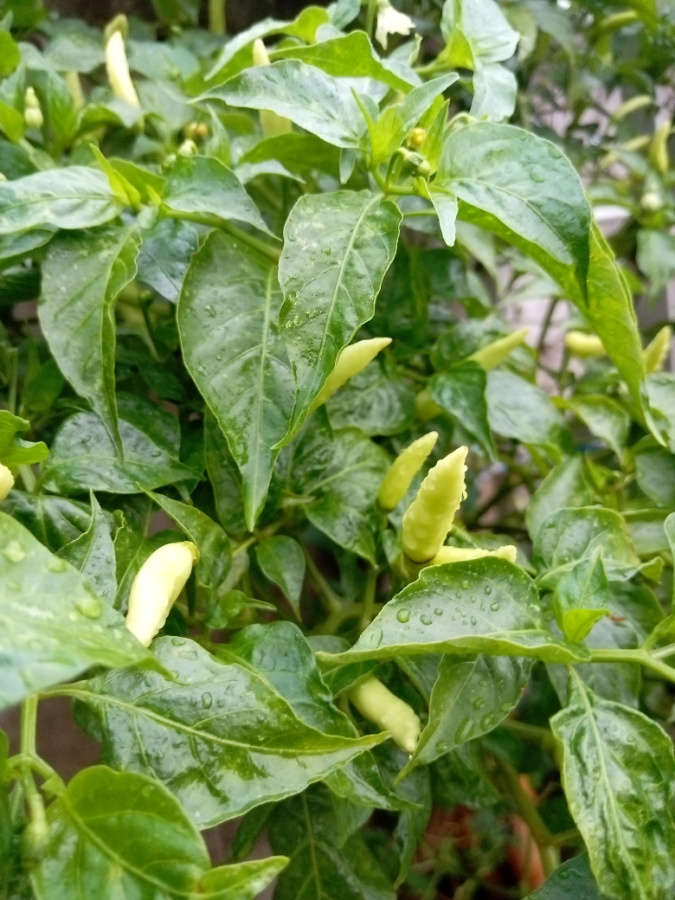Best Fertilizers for Peppers: A Comprehensive Guide to Boost Your Harvest
Best Fertilizers for Peppers: A Comprehensive Guide to Boost Your Harvest
Blog Article
Organic Vs. Synthetic Fertilizers: Which Is Best for Nurturing Healthy Pepper Plants?
In the world of supporting healthy and balanced pepper plants, the selection in between artificial and organic plant foods stands as a crucial decision with far-reaching effects. While both choices goal to supply important nutrients to support plant development, the subtleties of their influence on the soil, plant wellness, and the atmosphere spark a debate that mirrors throughout the horticulture area. Comprehending the distinct advantages and possible mistakes of each fertilizer kind is important for pepper cultivators seeking to enhance their yields while keeping a sustainable and eco-conscious method.
Advantages of Organic Fertilizers
Organic plant foods provide a lasting and environmentally-friendly strategy to beneficial pepper plants, supplying crucial nutrients without the usage of artificial chemicals. These natural fertilizers are originated from organic sources such as garden compost, manure, bone meal, and algae, promoting soil health and biodiversity. Unlike synthetic plant foods, organic choices launch nutrients slowly, ensuring a constant and balanced supply for pepper plants to flourish.
One substantial benefit of organic plant foods is their capacity to improve dirt structure and water retention. By boosting soil wellness, organic plant foods promote advantageous microbial task, which assists in nutrient uptake by pepper plants. In addition, natural fertilizers reduce the danger of chemical run-off, shielding water sources from contamination and safeguarding the environment.
Moreover, natural plant foods add to lasting dirt fertility by advertising the development of helpful soil microorganisms. These organisms help damage down organic issue, launching nutrients in a kind that is easily accessible to pepper plants. best fertilizers for peppers. By promoting a healthy and balanced dirt ecological community, natural fertilizers sustain lasting pepper cultivation practices that benefit both plants and the environment
Drawbacks of Synthetic Fertilizers
Synthetic fertilizers, unlike their organic equivalents, posture numerous disadvantages when used to nourish pepper plants, impacting both plant health and environmental sustainability. One significant downside of artificial plant foods is their tendency to seep nutrients from the dirt promptly. This quick leaching can cause vitamins and mineral inequalities in the dirt, creating plants to experience poisonings or shortages. Furthermore, synthetic fertilizers can harm advantageous soil organisms, such as earthworms and beneficial germs, interrupting the soil community's balance.
In addition, the overuse of artificial plant foods can add to water pollution. Excess plant foods not taken in by plants can remove into water bodies, bring about eutrophication, where algae blossoms deplete oxygen degrees in the water, harming aquatic life. In addition, synthetic fertilizers are commonly obtained from non-renewable resources, such as nonrenewable fuel sources, contributing to carbon discharges and ecological deterioration during their manufacturing.
Nutrient Absorption Contrast
When comparing natural and artificial plant foods in terms of nutrient absorption, natural plant foods have the benefit of providing a much more balanced and slow-release source of nutrients. Organic fertilizers consist of a selection of macro and trace elements that are not just helpful for the plants yet also promote healthy soil microbial task, which aids in nutrient uptake.
Furthermore, organic fertilizers enhance soil framework and water retention ability, permitting pepper plants to accessibility nutrients extra successfully. This improved dirt quality facilitates root growth, making it possible for far better nutrient absorption. Artificial plant foods, although at first increasing plant development as a result of their high nutrient focus, may hinder long-term nutrient absorption by degrading dirt wellness gradually.
Ecological Effect Considerations

On the other hand, artificial fertilizers, although typically more focused and quickly offered to plants, can have harmful results on review the atmosphere otherwise applied properly (best fertilizers for peppers). Their manufacturing requires high power inputs, leading to greenhouse gas emissions and adding to climate adjustment. Furthermore, the drainage of excess synthetic plant foods can contaminate water resources, leading to eutrophication and hurting aquatic ecological communities.
Best Plant Food Practices for Peppers
When fertilizing pepper plants, optimizing nutrient uptake and lessening ecological impact are crucial factors to consider. To attain this, it is vital to comply with finest plant food techniques customized to the specific needs of pepper plants. One important method is to carry out a dirt examination before applying any fertilizers. This test can identify the pH level of the soil and identify any nutrient deficiencies, directing you in choosing the most suitable fertilizer formula.
Another essential practice is to feed pepper plants at the correct time. Typically, peppers gain from obtaining plant food at planting and afterwards once more when they begin to flower. Over-fertilizing can result in nutrient imbalances and damage the plants, so it is crucial to click to read more comply with recommended application prices.
Furthermore, picking a balanced plant food with an NPK ratio that fits pepper plants' demands is essential. Eventually, integrating artificial and organic fertilizers deliberately can assist support healthy pepper plants while lessening environmental effect.
Verdict

Organic plant foods use a lasting and environmentally-friendly technique to beneficial pepper plants, providing vital nutrients without the usage of synthetic chemicals. Unlike synthetic fertilizers, natural options release nutrients gradually, guaranteeing a well balanced and constant supply for pepper plants to flourish.
Synthetic plant foods, in comparison to their natural equivalents, pose various downsides when made use of to nurture pepper plants, impacting both plant health and environmental sustainability. When comparing artificial and natural plant foods in terms of nutrient absorption, natural plant foods have the benefit of giving an extra balanced and slow-release resource of nutrients.Furthermore, organic fertilizers improve soil structure and water retention capability, enabling pepper plants to gain access to nutrients extra successfully.
Report this page